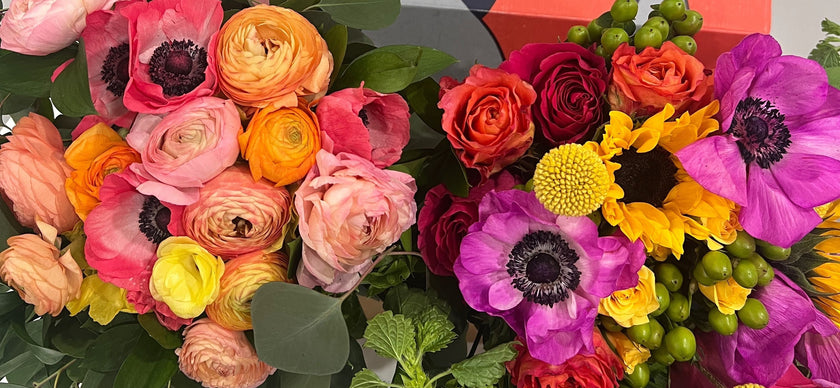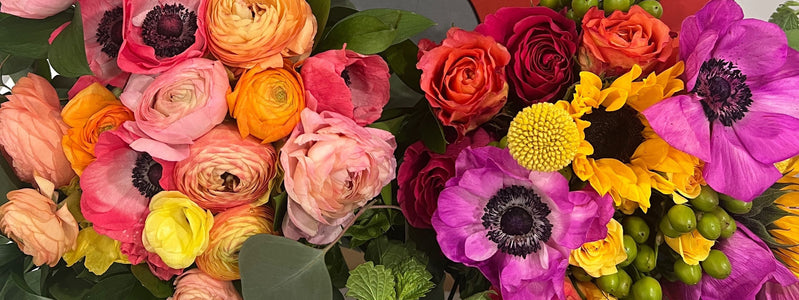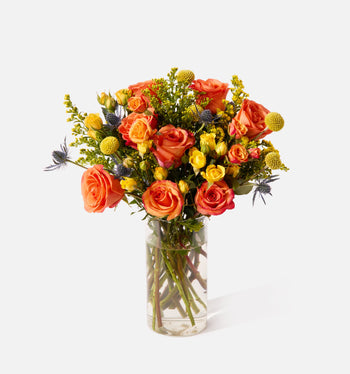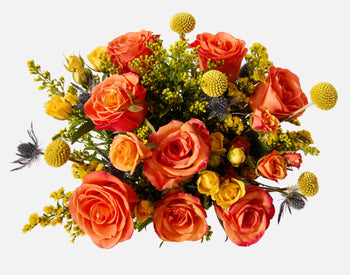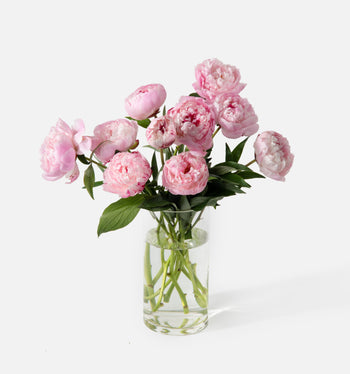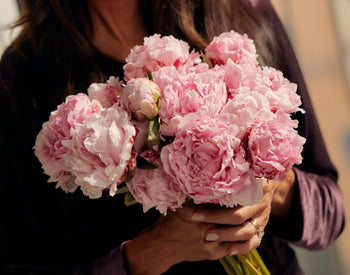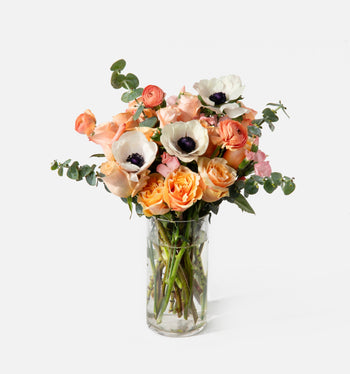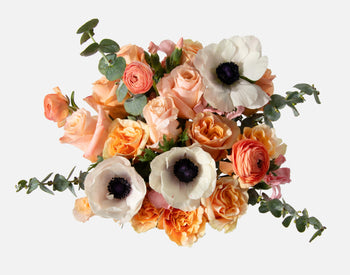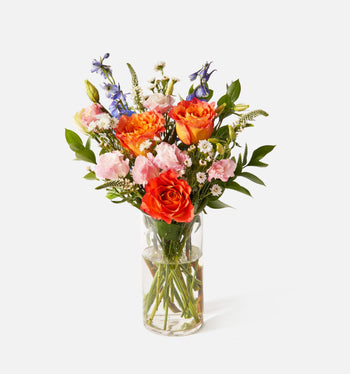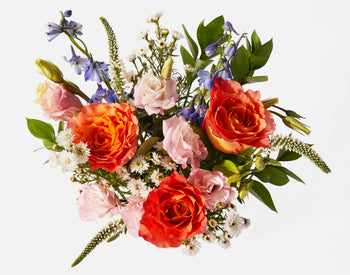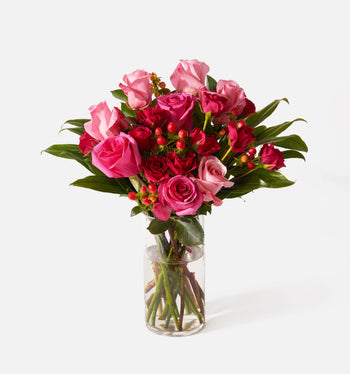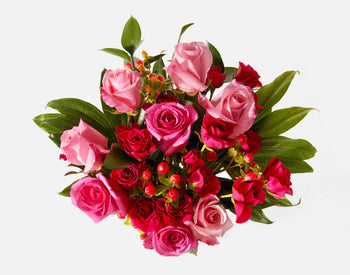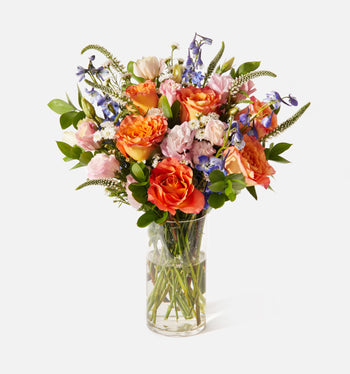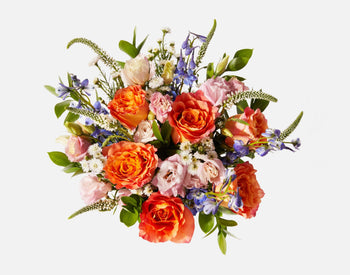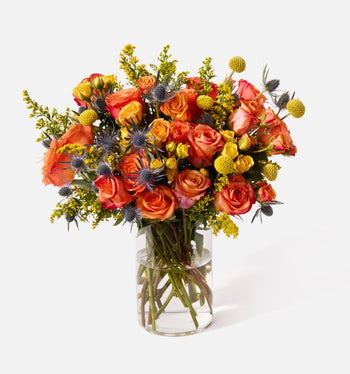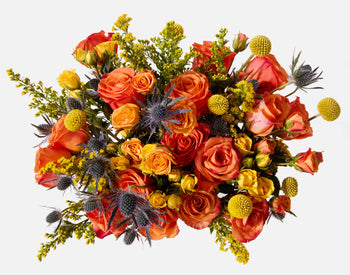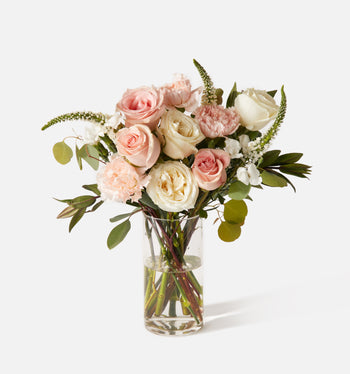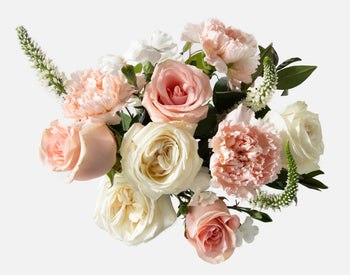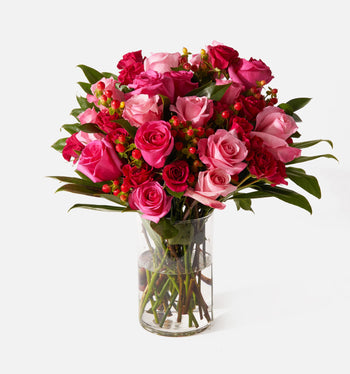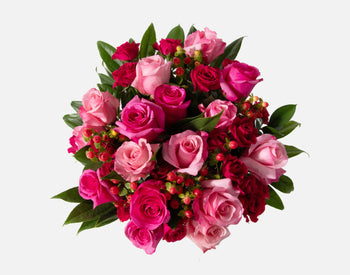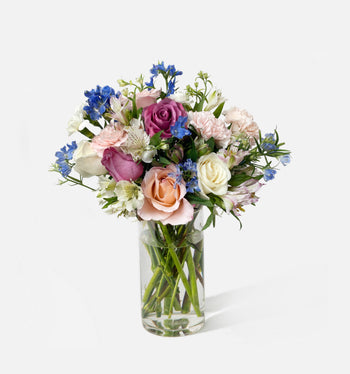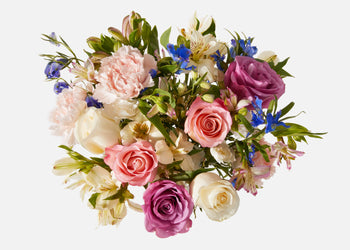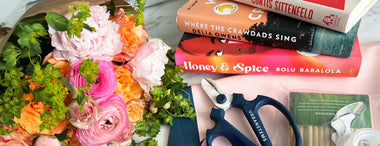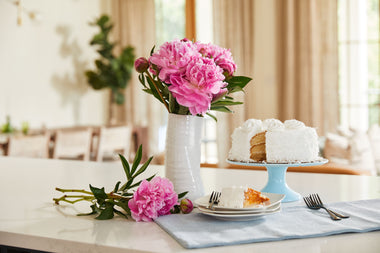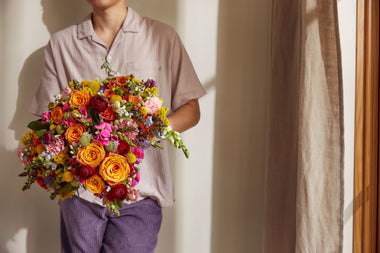Most people know to trim fresh-cut flowers before putting them in a vase. However, many people don’t know how to properly trim the stems to increase longevity and beauty. But we’re here to help! After reading this, you’ll be a stem-trimming pro and will be able to make your bouquets last way longer!
A Guide to Trimming Stems the Right Way
- Benefits of Proper Trimming
- How to Trim Flower Stems Properly
- What to Not Do When Trimming Stems
- More Tips for Caring for Cut Flowers
It’s much easier to put your lovely bouquet in a vase as soon as you get it, but taking a few extra minutes to trim the stems and set up the bouquet properly offers many benefits. Below are the top three benefits of properly trimming your stems before placing them in the vase.
Longer Lasting Bouquets: The top benefit of properly and carefully trimming your bouquet’s stems is that it makes the flowers last substantially longer. Bouquets typically last about a week, but when you trim them gently, pay attention to the water level, and feed them plant food, you can enjoy your dazzling bouquets for two weeks or longer, depending on the flower species. A simple trim when you receive your bouquet can double the time you get to enjoy it.
Tailored Arrangements: Our bouquets come beautifully arranged already, but trimming the stems allows you to customize the arrangement a bit. You can trim different flowers and foliage to different heights, adding depth to your bouquet. Or you can ensure all flowers sit at the same height for a uniform appearance. Trimming the stems also makes it easy to place the bouquet in any vase you want, whether it’s short and stout, like the one shown with the Triple The Peony bouquet, or tall and slender, like the one pictured with The Firecracker.
Healthier Flowers: When your flowers are healthy, they look more vibrant and full of life. If the bottom of the stems in your bouquet dried out in transit, putting the dry stems in water will make it difficult for the flowers to drink, causing them to lose color, vividness, and shape. Flowers are just like us! The healthier they are, the better they look!
Trimming stems can feel like a chore, but, we promise, it’s worth the effort. And it’s easier than you may think! Follow the instructions below to perfectly trim your bouquet stems so the flowers last longer and look better.
Trim and Remove Low Foliage
Many people neglect to trim and remove the foliage on the stems of the flowers. If your bouquet has many leaves, small branches, and thorns that will sit below the water line in the vase, these should be trimmed and discarded. Allowing foliage to sit in the water can lead to rot, foul odors, and withering flowers. All leaves and blossoms should sit above the water line or be removed. The foliage is part of the flower’s hydration process, so try to leave as much as possible toward the top of the stem.
Decide Where to Trim the Stems
Deciding where to trim your stems is more controversial than you may think. Some people recommend trimming the end of the stem no more than ¼ inch, while others recommend cutting 3 inches off the bottom. So, what is the right answer? We think you should consider two factors when choosing where to cut: the dryness of the stems and your vase size. As mentioned in the section above, trimming your stems can help you tailor the bouquet to your vase of choice.
Place your vase on the edge of a counter or table (not too close to the edge) and hold the bouquet next to the vase so the blossoms land at the height you want. Cut the stems according to this height. If you have a tall vase, you may not want to trim the stems at all. But we recommend assessing the bottom of the stems and cutting off the driest part. If the bottom 2 inches of the stems are withered and discolored, we suggest chopping them off to give the fresher, green part of the steam chance to drink. If only the bottom half inch is dry, you can just cut that!
Cut Gently at an Angle
Once you’ve settled on where you want to trim the stems, grab a pair of pruners or very sharp scissors. You can use a knife if that’s all you have, but try to make clean, swift cuts instead of jagged sawed cuts, as this is harsh on the flower. Using your clean instrument, cut the stem at a 45-degree angle. Cutting stems at an angle creates more surface area for water absorption, so a straight cut may result in a dehydrated, withering bouquet.
Some flower stems are super tough and difficult to cut, but we still recommend being as gentle and swift as possible. Try not to bend the stems when cutting them. Some bouquets, like the Double The Sonny, can take more effort to trim, but be gentle. It’s much easier to trim one flower stem at a time, so don't try to cut all the stems in one go. Once you cut all the stems to the desired length, you can place them in your vase and enjoy them for days or weeks to come! Remember to change the water frequently and nourish the flowers with plant food.
Recut Stems When Changing the Water
Speaking of changing the water, you can make your flowers last even longer by gingerly recutting the stems every time you swap out the water. In case you didn’t already know, you should change your bouquet’s water daily or whenever it looks cloudy. When you do this, we strongly recommend grabbing your pruners or scissors and giving the bottom of each stem a quick snip. To maintain the length but still refresh the stems, cut at a 45-degree angle in the opposite direction of your last cut. This should leave you with a small rhombus-like piece of stem and healthy green stems!
Before you go, we want to leave you with a quick overview of other best care practices for our beautiful bouquets. To make our fresh-cut flowers last longer in your home:
- Keep them in a cool place.
- Keep them away from direct sunlight.
- Refresh the water daily.
- Add plant food to the water every time you refresh it.
- Use distilled or purified water if possible.
- Use warm water.
- Ensure your vase is thoroughly cleaned before using it.
- Keep flowers away from fruits and vegetables.
- Fill the vase with as much water as possible.
And that is the recipe for long-lasting, gorgeous bouquets in your home. We pride ourselves on offering the freshest and most vibrant bouquets, and we want you to enjoy them for as long as possible!
